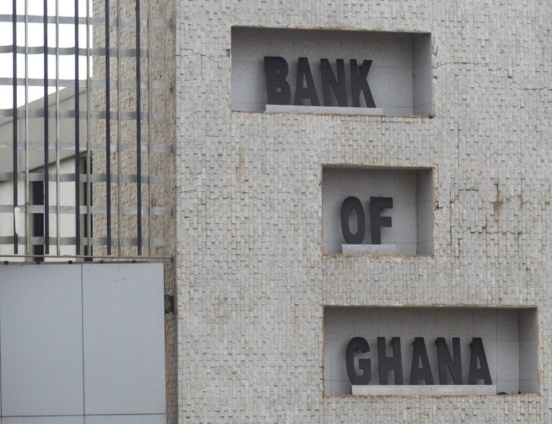Banks profit for the first half of this year went up by about 15.5% to ¢1.9 billion.
However, the earnings is lower than the 36.3% growth registered during the same period last year.
According to the latest Banking Sector Report, the decline in profit levels was mainly due to sharp increases in the three cost elements.
The Central Bank however said the industry remained sufficiently profitable during the first half of 2020 although increases in interest expenses, operational costs and higher loan loss provisions constrained profitability growth.
Growth in net interest income also marginally declined to 16.5% in the first six months of this year.
This is attributed to a much higher increase in interest expenses on the back of increased term deposits and relatively more expensive borrowings.
Interest income, on the other hand, grew by 13.7%, a much lower incremental change than the 9.4 percent a year ago. This partially offset the increase in interest expenses.
However, despite the slowdown in credit growth during the period which affected interest income from loans, increases in investments sustained the overall interest income of banks.
Also, net fees and commissions grew strongly at 10.3% from 3.7% over the period due partly to more usage of electronic banking products and services in the wake of the Covid-19 pandemic.
Operating expenses also shot up by 12.9% during the first half of 2020 from 7.6% a year ago.
This was due to the sharp 17.3% increase in banks’ other operational costs attributed largely to costs associated with the safety protocols and containment measures of Covid-19 as well as activation of Business Continuity Plans during the period.
Return on Assets and Return on Equity Return
Return on Equity which is very dear to the heart of shareholders moderated to 20.6% at end-June 2020 from 21.2% at end-June 2019, largely due to the slowdown in profit growth during half year-2020.
Similarly, Return on Assets (ROA) also dipped marginally during the period to 4.1% from 4.4%.
The profitability indicators however remain strong despite the dip, with the Central Bank concluding that the industry remained profitable despite the pandemic-induced increases in costs.
Latest Stories
-
ACEYE releases IGIPTEP report, assessing the performance of Ghana’s government institutions
3 minutes -
Photos: Mahama observes Eid Al-Fitr with Muslim community at Black Star Square
7 minutes -
Bono Regional Minister rallies Muslims support towards galamsey fight
13 minutes -
Russia still ‘working with US’ after Trump says he is ‘angry’ with Putin
15 minutes -
Trade Ministry pledges commitment to agricultural transformation at UKGCC Grand Challenge Programme
1 hour -
NLA’s Chief Internal Auditor honoured at the Ghana Executive Management Awards
2 hours -
African Forest Forum launches AY4F platform to empower young forestry professionals
2 hours -
A Rocha Ghana warns of devastating impact of L.I. 2462 amendment
2 hours -
Experts call for stricter enforcement of Land Act amid rising land disputes
2 hours -
Ghana is a nation blessed with religious harmony – President Mahama
2 hours -
Stop building on waterways to avoid havoc – President Mahama
2 hours -
Korean star Kim Soo-Hyun denies accusations by late actress’ family
2 hours -
Betis should crowdfund to extend Antony loan – Isco
3 hours -
Depending on aid will not take Ghana out of poverty – Ayorkor Botchwey
3 hours -
Africa Education Watch condemns GETFund allocation to MPs for education projects
3 hours

